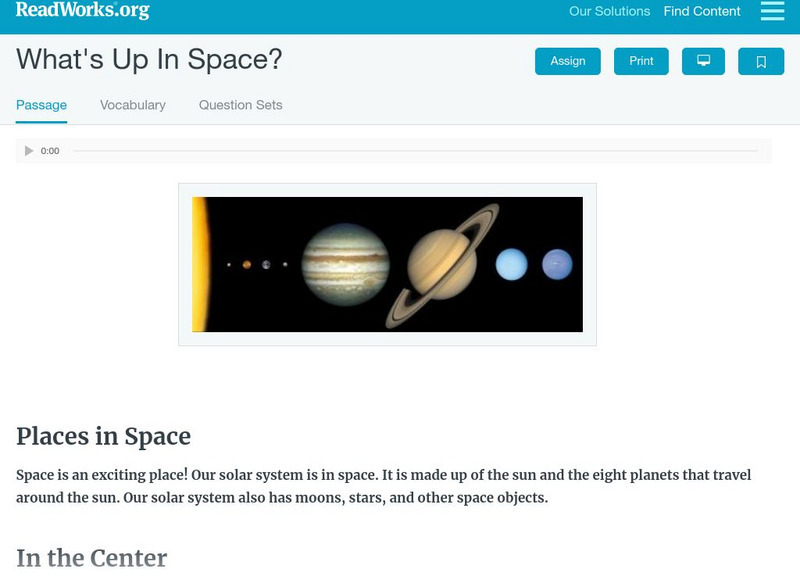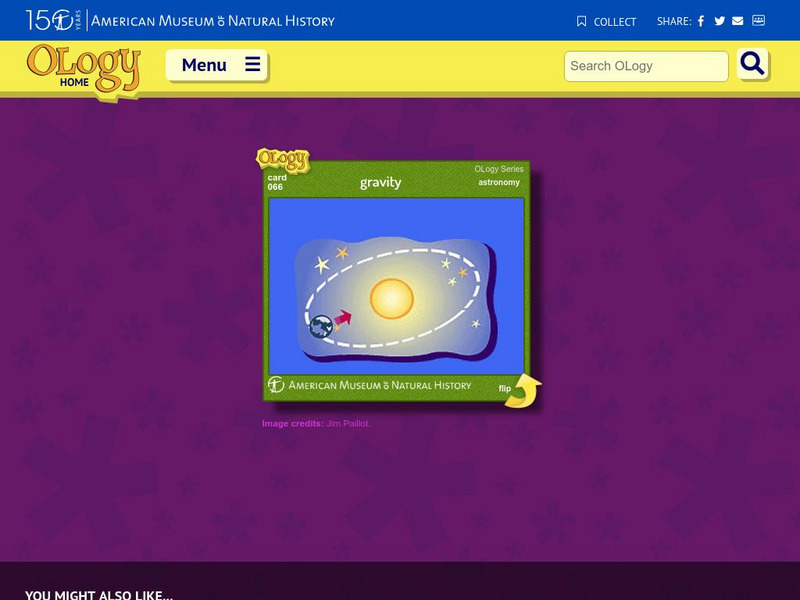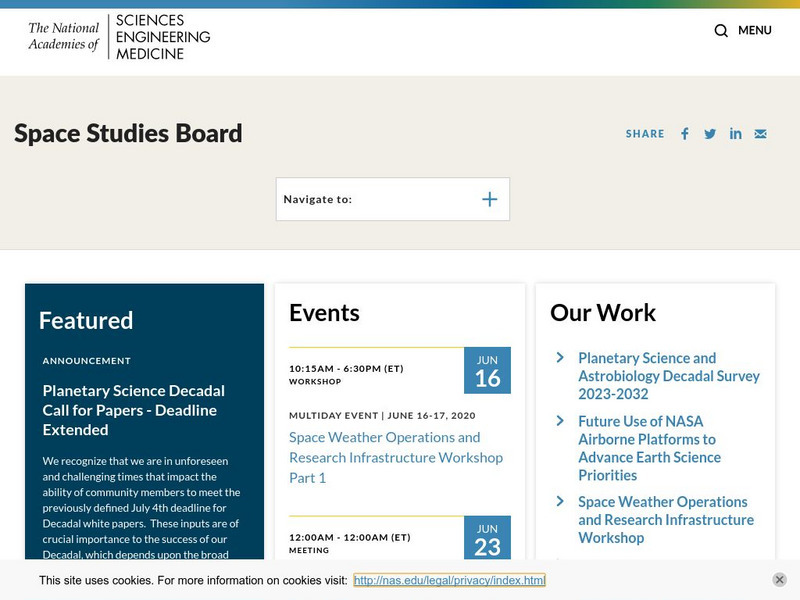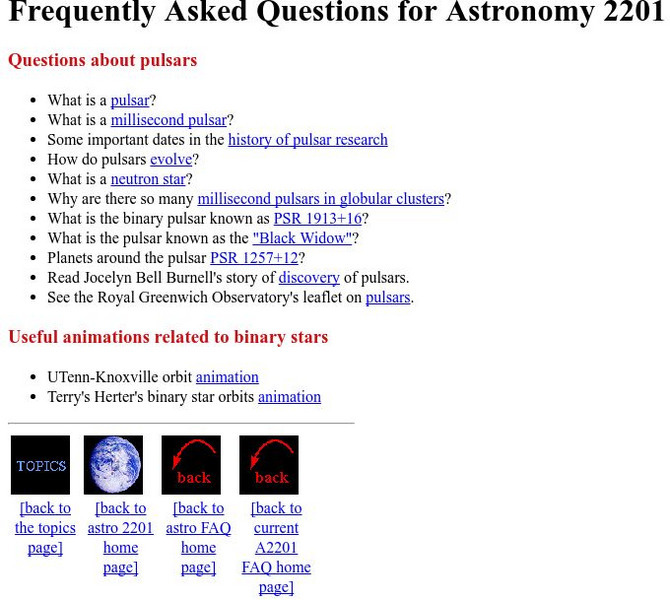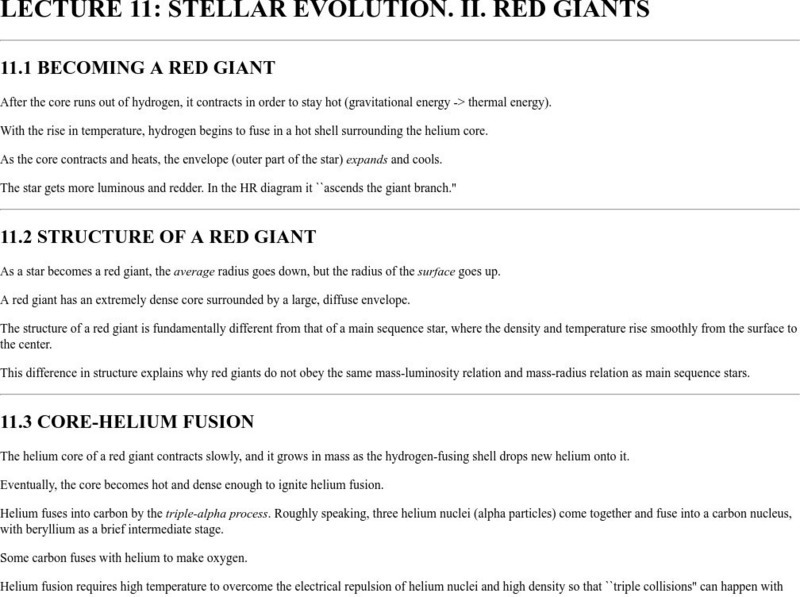Hi, what do you want to do?
Read Works
Read Works: What's Up in Space?
[Free Registration/Login Required] This nonfiction passage discusses what is up in outer space. This passage reinforces essential reading comprehension skills. Opportunities for vocabulary acquisition are also included. Several questions...
Math Planet
Math Planet: An Introduction to Geometry
Provides an introduction to geometry with definitions of points, lines, planes and angles through the use of examples and a brief video lesson. [1:28]
Enchanted Learning
Enchanted Learning: Crafts for Kids
Choose from dozens of simple crafts including activities for the holidays, animal crafts and much more.
Cool Math
Coolmath: Science Monster: Introduction to Our Solar System
Find out about all the planets and other solar system characteristics in this colorful, illustrated tutorial on our neighborhood in space.
PBS
Pbs Learning Media: Space Exploration
Students are prompted to respond to the question, do you think money spent on space exploration is justified?
TED Talks
Ted: Ted Ed: Is It Possible to Create a Perfect Vacuum?
Rolf Landua and Anais Rassat explain the science behind vacuums.
NC State University
Adventures of the Agronauts
Come along with the Agronauts and discover space in order to report back to Commander Spud Goodroot. Fun site provides all types of information about space science! Various missions include: 'What's In Our Sky?', 'The Root of the...
CK-12 Foundation
Ck 12: Analysis: Three Dimensional Positions
[Free Registration/Login may be required to access all resource tools.] Identifying positions in 3-dimensional space
American Museum of Natural History
American Museum of Natural History: Ology: Gravity
Flip the card, and learn about gravity.
Other
The National Academies: Space Studies Board
The Space Studies Board is a division of the National Academies which were created to advise the government in scientific and technical matters.
American Museum of Natural History
American Museum of Natural History: Universe O Logy Card
OLogy cards are like virtual baseball cards about all kinds of science topics. This one is about the Universe and the astronomers that studied the Universe. See if you can answer a few questions when you're done reading.
Harvard University
Harvard Univ.: Chandra X Ray Observatory Center
The Chandra Observatory uses x-ray telescopes to learn more about the make-up of the universe. To learn more about x-ray telescopes and to see what they reveal, click here for the official Chandra X-ray Observatory website.
Harvard University
Field Guide to X Ray Sources: Brown Dwarfs
Brown Dwarfs are explained. Includes illustrations.
Harvard University
Quasars and Active Galaxies
This site provides information about quasars and active galaxies. Includes a glossary of important terms.
Harvard University
Chandra X Ray Observatory Center: X Ray Pulsar
X-ray pulsars are explained. Features a Java applet that simulates a pulsar and allows the viewer to control the rotational speed.
Alabama Learning Exchange
Alex: Air Is All Around You
In this science lesson students will be asked the question, "Does air take up space?" and "Does air have weight?" Students will conduct experiments that prove that air has mass, takes up space, and exerts pressure.
PBS
Pbs Learning Media: Aerospace Engineering
This collection of Aerospace Engineering learning modules will allow students to explore video and interactive media resources that support the middle and high school Engineering Design core ideas.
University Corporation for Atmospheric Research
Ucar: Coronal Mass Ejection (Cme)
A Coronal Mass Ejection (CME) is a powerful, explosive "storm" from the Sun. CMEs hurl millions of tons of particle radiation outward into space.
Khan Academy
Khan Academy: Prepositions About Time and Space
Identify and use prepositions that show relationships in time and space.
E-learning for Kids
E Learning for Kids: Math: World of Fish: Space
Join Otto at the Phantasia construction site. Will you help him build a new playground?
Cornell University
Cornell University: Astronomy: Frequently Asked Questions
Definintions for pulsars, millisecond pulsars, the evolution of pulsars, neutron stars and "Black Widows." Features related links.
University of Oregon
The Electronic Universe: Ccd Images of Planetary Nebulae
Basic characteristics of planetary nebulae and the relationship to stellar evolution is presented along with many detailed images.
Ohio State University
Ohio State University: Red Giant Star Lecture Notes
Describes how a star becomes a red giant, the structure of a red giant, core-helium fusion, lifetime predictions, and the position on the HR diagram.
Other
Planetary Nebulae Observer Home Page
This home page is linked to detailed descriptions of nebulae types, shapes, and structures and their relationship to stellar evolution, a historical perspective on the discovery of nebulae, a gallery of images, and other related resources.





